International
Two former Uruguayan military officers convicted for crimes during dictatorship
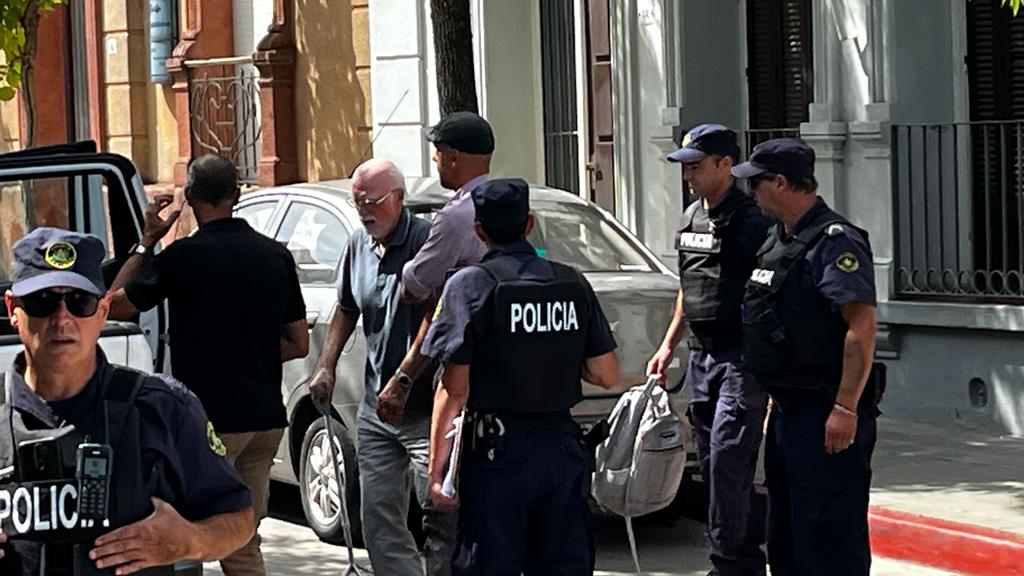
June 2 |
The Uruguayan justice system sentenced two retired military officers linked to the country’s last dictatorship to 12 years and six months in prison on Thursday for crimes against humanity against young communists.
The Uruguayan criminal judge, María Elbia Merlo, applied the sentence to Rubens Francia and Francisco Macaluso after considering them co-perpetrators of several crimes of deprivation of liberty and torture.
According to the ruling, Francia and Macaluso will serve their respective sentences with a discount in the time of preventive detention due to the fact that both have been under house arrest since last year.
A group of former political prisoners, who were imprisoned between 1975 and 1978 in the headquarters of the Mechanized Infantry Battalion N°6, denounced the convicts before the Specialized Prosecutor’s Office for Crimes against Humanity.
In this regard, the basis of the case was the “cruel, inhuman and degrading treatment” against more than 20 members of the Union of Communist Youth (UJC) in the military installation located some 95 kilometers west of the Uruguayan capital, Montevideo.
During an oral trial held early last May, eight victims presented testimonies of various tortures, including beatings, so-called “waterboarding” (sinking the prisoner in a tank of water), electric shocks and sexual abuse, among others.
Based on this, the magistrate issued her ruling in which she concluded that the two accused, who in 1975 performed duties in the aforementioned battalion, were involved in the practice of various methods of torture.
The civil-military dictatorship began in 1973 after the June 27 coup d’état and lasted until March 1985, when democracy returned. During this period, about 170 political prisoners disappeared while about a hundred died.
International
Federal immigration agents kill man in Minneapolis, sparking protests and outrage

Federal immigration agents shot and killed a 37-year-old Minneapolis man during an operation on Saturday, authorities confirmed, sparking new protests and deepening outrage over federal immigration enforcement in the city.
The victim, identified as Alex Jeffrey Pretti, was a U.S. citizen and intensive care nurse who worked at a Veterans Affairs hospital and was widely respected in his community, according to colleagues and news reports.
Officials said the shooting occurred during a targeted immigration raid in south Minneapolis. The Department of Homeland Security (DHS) described the incident as an act of self-defense by agents who believed the man posed a threat.
However, videos reviewed by multiple outlets and eyewitnesses show Pretti holding a phone and not displaying a weapon before being pepper-sprayed, tackled by agents and then shot multiple times, raising serious questions about the official account.
The killing comes amid a broader federal immigration enforcement operation in the city and follows another controversial shooting in early January in which Renée Good, a 37-year-old U.S. citizen, was fatally shot by an ICE agent, leading to widespread protests and criticism of federal tactics.
International
Delcy Rodríguez seeks political agreements after Maduro’s ouster
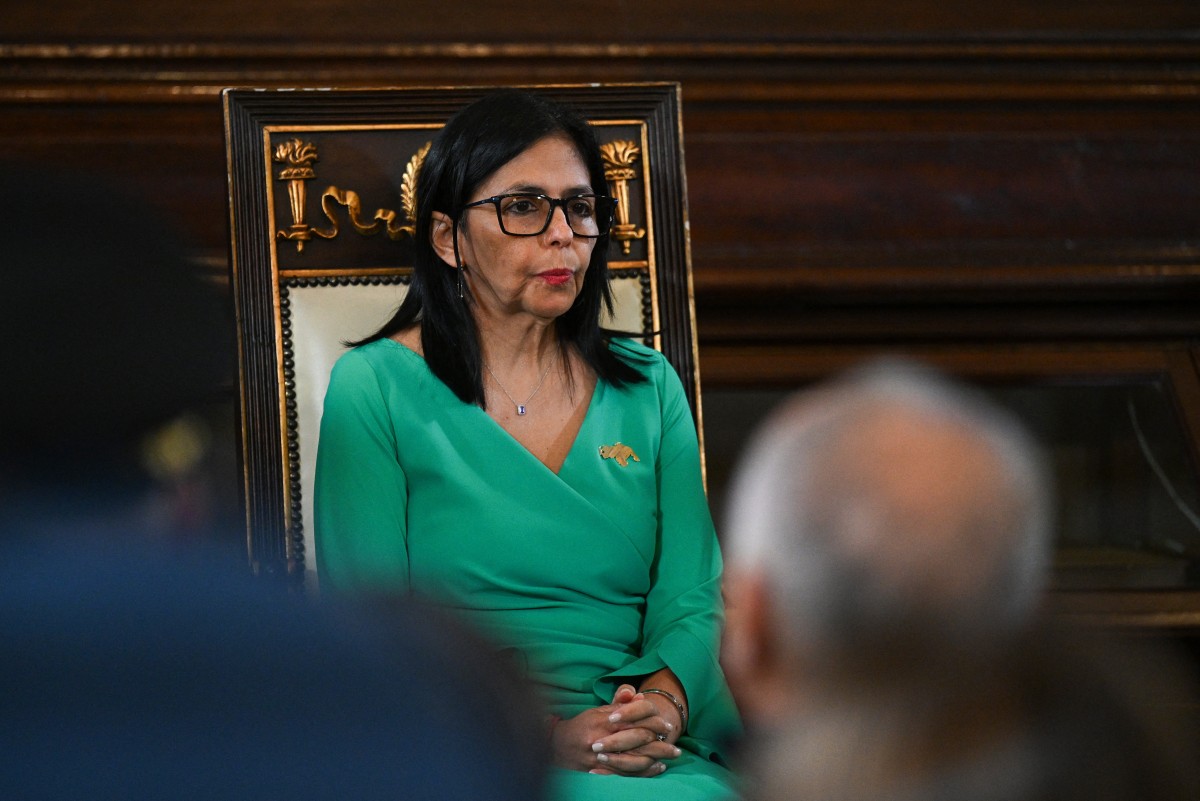
Venezuela’s interim president, Delcy Rodríguez, on Saturday called for “reaching agreements” with the opposition to achieve “peace” in the country, which the United States says it now controls following the military operation that removed President Nicolás Maduro from power.
Rodríguez, who previously served as Maduro’s vice president, assumed interim leadership after the leftist leader was captured on January 3 during a military incursion that left nearly 100 people dead.
In her first public statements since taking office, Rodríguez signaled a shift in the strained relationship between Caracas and Washington, while also committing to the release of a “significant number” of political prisoners.
“There can be no political or partisan differences when it comes to the peace of Venezuela,” Rodríguez said during an address in the coastal state of La Guaira, broadcast on state television VTV.
“From our differences, we must speak to one another with respect. From our differences, we must meet and reach agreements,” she added.
The day before, Rodríguez instructed the head of Parliament — her brother Jorge Rodríguez — to convene talks with various political sectors in the country aimed at achieving “concrete and immediate results.”
International
Bogotá and Quito Seek Dialogue After Tariffs and Power Cut Escalate Tensions
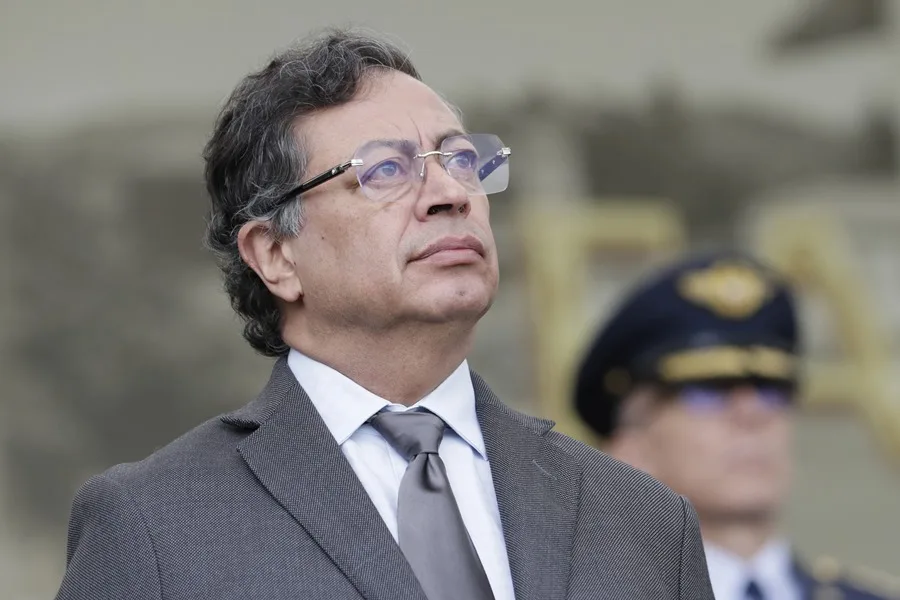
Bogotá and Quito will hold an emergency bilateral summit next week amid recent developments that have strained relations between the two countries.
Tensions escalated this week after Ecuadorian President Daniel Noboa unexpectedly announced a 30% tariff on Colombian imports. Colombia responded with a reciprocal measure, imposing the same tariff on around 20 Ecuadorian products and suspending electricity exports to Ecuador.
Aware that electricity imports are critical to easing Ecuador’s recent energy crises, Quito further imposed a 30% tariff on the transportation of Colombian oil through its territory.
However, recent statements from the Ecuadorian government suggest that dialogue between the two sides has intensified in recent hours. Ecuador’s Minister of Foreign Affairs, Gabriela Sommerfeld, confirmed that active conversations are under way.
In Colombia, segments of the business sector have welcomed the prospect of negotiations. The National Business Council (Consejo Gremial Nacional, CGN), for instance, urged both governments to restore commercial relations, warning that the dispute “puts jobs and regional economic stability at risk.”
-

 International4 days ago
International4 days agoMexican influencer “La Nicholette” kidnapped in exclusive area of Culiacán
-

 Central America3 days ago
Central America3 days agoMazatenango Carnival cancelled amid State of Siege in Guatemala
-

 International3 days ago
International3 days agoTrump to invite Venezuela’s interim president Delcy Rodríguez to Washington
-

 International5 days ago
International5 days agoDaily Mail publisher insists reports relied on legitimate sources amid privacy trial
-

 International4 days ago
International4 days agoMajor winter storm to blanket U.S. and Canada with snow, ice and arctic cold
-

 International3 days ago
International3 days agoMarkets rise as Trump halts Europe tariffs and floats Greenland agreement framework
-

 International5 days ago
International5 days agoGermany says football bodies alone will decide on possible World Cup boycott
-
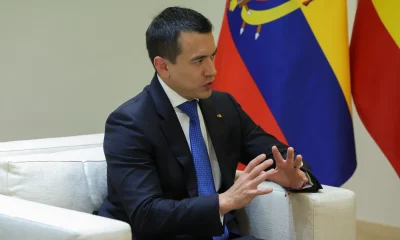
 International4 days ago
International4 days agoColombia slams Ecuador’s 30% tariff as ‘economic aggression’
-

 International4 days ago
International4 days agoTrump announces preliminary NATO agreement on Greenland, suspends tariffs on Europe
-

 International3 days ago
International3 days agoVenezuela’s interim president predicts 37% increase in revenues for 2026
-

 International3 days ago
International3 days agoJapan reopens Kashiwazaki-Kariwa Plant despite public concerns
-

 Internacionales2 days ago
Internacionales2 days agoMajor winter storm threatens “catastrophic” ice and snow across much of the U.S.
-

 International1 day ago
International1 day agoTrump-Era Defense Plan Prioritizes Border Security and Scales Back Global Commitments
-

 International3 days ago
International3 days agoFour minors killed in deadly clash between FARC dissidents in Colombia’s Amazon
-
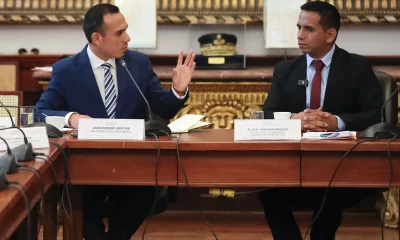
 International4 days ago
International4 days agoJosé Jerí claims destabilization attempt after videos of secretive meetings surface
-

 International2 days ago
International2 days agoGuatemala considers sending high-risk gang members to military prisons
-

 Central America2 days ago
Central America2 days agoGuatemala’s president rules out negotiations with inmates after prison riots
-

 International1 day ago
International1 day agoBogotá and Quito Seek Dialogue After Tariffs and Power Cut Escalate Tensions
-

 International2 days ago
International2 days agoRights group says over 5,000 killed in Iran protests, mostly civilians
-

 International2 hours ago
International2 hours agoDelcy Rodríguez seeks political agreements after Maduro’s ouster
-

 International2 hours ago
International2 hours agoFederal immigration agents kill man in Minneapolis, sparking protests and outrage


























